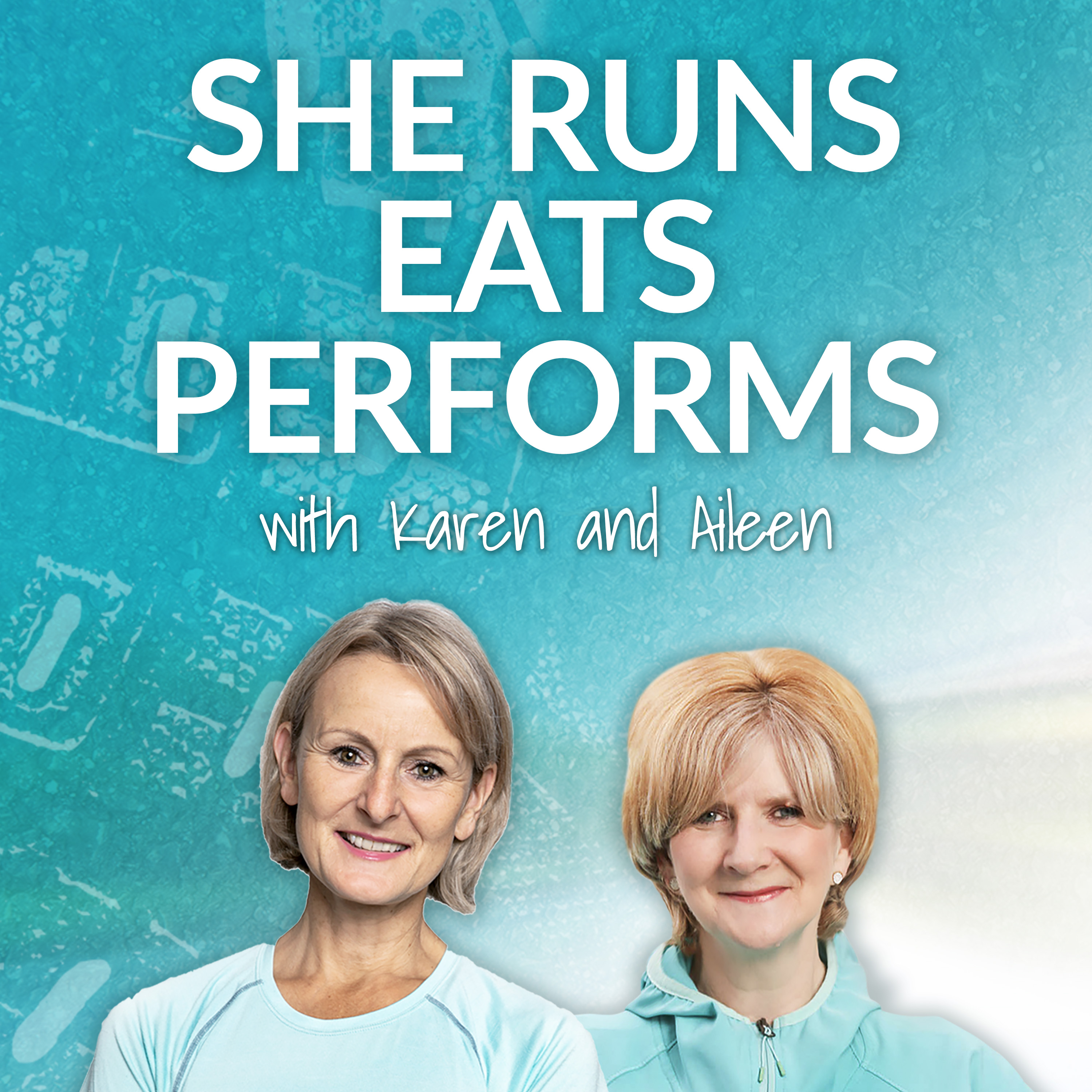Running Nutrition: What is the Research Saying?
Running Nutrition; What is the Research Saying?
In our Podcast episodes we often quote research and this is because we believe it’s vital that the information, we share is evidence-based alongside giving you our own personal views.
So, here we explain a little bit more about the different types of research papers we access, the scientists we follow, and WHY we trust their views.
We outline the different research paper sources available and give you an understanding of the PURPOSE of the different types of study papers before discussing some of the ones we access and trust.
Show Notes
(08:00)
There are many research styles, however the ones we most commonly quote include:
Primary research – is solely carried out to address a certain problem, which requires in-depth analysis. This type of research is “pinpointed” i.e. research is carried around only a specific issue or problem and all the focus is directed to obtain related solutions e.g. mouth rinsing with CHO and its potential impact on sports performance.
Position Stands - Position Stands tend to be official documents, developed using a specified evidence-based methodology, on significant societal issues that merit interdisciplinary consideration and consensus e.g. International Society of Sports Nutrition (ISSN) Position Stand: Caffeine and Performance
Joint Position Statements - Joint Position Statements are similar to Position Stands, but are developed in conjunction with at least one other not-for-profit organisation or governmental agency. E.g. Prevention, diagnosis and treatment of the overtraining syndrome: Joint consensus statement of the European College of Sport Science (ECSS) and the American College of Sports Medicine (ACSM)
Consensus Statements – are documents developed by an independent panel of experts, usually multidisciplinary, brought together to review the research literature for the purpose of advancing the understanding of an issue, procedure, or method e.g. The International Olympic Committee (IOC) consensus Statement: Beyond the Female Athlete Triad—Relative Energy Deficiency in Sport (RED-S)
Systematic/Cochrane Reviews and Meta-analyses –These are carried out in an effort to ensure decisions about health and health care are informed by high-quality, relevant and up-to-date research evidence. These bodies collate all the recent and relevant papers on a subject to review and decide whether there is sufficient evidence to suggest the research outcomes could support health and health-care.
(13:34)
There are lots of different types of research available, but what is their PURPOSE? Let’s delve a little deeper and try to answer this question. But firstly, just as an overview: All research methods, whether traditional or modern, fall into one of two categories: Primary research or secondary research.
Primary research is information gathered through self-conducted research methods, as we have already mentioned, whilst secondary research is information gathered from previously conducted studies.
Now let’s delve into the purpose of the different styles of research carried out:
Position Stands and Joint Position Statements (secondary research): Their purpose is to serve as authoritative and influential, evidence-based statements on topics of relevance to those working in whatever field the statement is supporting e.g. for us it would be the field of exercise science and sports medicine. The Position Stands and Joint Statements we tend to source come from highly regarded and well-respected organisations.
Consensus statements tend to be similar. Their purpose is to provide clinicians, Practitioners, Scientists etc. with guidance on a subject for which there is a lack of comprehensive evidence that could otherwise have led to a more definitive statement being made.
Systematic and Cochrane Reviews and Meta-analyses. It is really important that decisions about the use of an intervention or the validity of a hypothesis is not based on the results of a single study…..and this is because results typically vary from one study to the next. So, these review and meta-analysis styles collate the data from across many studies using objective formulas to help establish whether the conclusions from them can be translated into practical application.
(18:38)
FEMALE FACTORS:
1) There is currently a lack of sport science and sport medicine research conducted on female athletes. There are a few out there, but they are limited…..making it challenging to develop an evidence-informed approach to clinical practice for female athletes.
2) Applying evidence developed in male athletes to female athletes is thought to be a concern due to:
- The known biological differences between the sexes. E.g. Fluctuations in hormone concentrations at different stages of the menstrual cycle may influence performance
- Females having different biomechanical profiles compared to male athletes.
3) Researchers are recognising that, due to fluctuations in hormones during the menstrual cycle, female athletes may require different performance, nutritional, recovery, and injury prevention strategies in comparison to male athletes….and some researchers aim to address this situation.
(26:31)
There are many excellent Scientists out there who are constantly researching the power of nutrition in Sports Performance, but some of the ones we follow and trust include:
- Louise Burke
- Asker Yeukendrup
- Michael Gleeson
- Ron Maughan
- Kevin Tipton
- John Hawley
- Graeme Close
And some organisations that we trust include:
- ACSM – American College of Sports Medicine
- IOC – International Olympic Committee
- ISSN – International Society of Sports Nutrition
- AIS - Australian Institute of Sport
- ECSS – European College of Sports Science
(28:39)
Two examples of key papers we have utilised and quoted from are:
- A Position Stand published by ISSN on nutrition for ultra-running. This was a valuable paper for us to utilise in our work as there is very little reliable and evidence-based information available on nutrition for distances beyond marathon
- The Consensus Statement by the IOC in 2014 (and updated in 2018) outlining RED-S and establishing it as a more comprehensive, broader term than Female Athlete Triad for a syndrome caused by Relative Energy Deficiency and affecting metabolic rate, menstrual function, bone health, immunity, protein synthesis, cardiovascular and psychological health.
(35:26)
KEY TAKEAWAYS:
1) There are many different types of research papers available, but the principle ones we refer to include:
- Primary research
- Secondary research
- Position Stands
- Joint Position Statements
- Consensus Statements
- Review papers
2) Remember all research methods fall into one of two categories: Primary research or secondary research where primary research is information gathered through self-conducted research methods and secondary research is information gathered from previously conducted studies.
3) Position Stands and Joint Statements we tend to source come from highly regarded and well-respected organisations including:
- ACSM – American College of Sports Medicine
- IOC – International Olympic Committee
- ISSN – International Society of Sports Nutrition
- AIS - Australian Institute of Sport
- ECSS – European College of Sports Science
4) There are many excellent scientists currently researching the field of sport and exercise nutrition. Some of the ones we respect and follow include:
- Louise Burke
- Asker Yeukendrup
- Michael Gleeson
- Ron Maughan
5) Finally, there is currently a lack of sport science and sport medicine research conducted on female athletes….but the science world is trying to address this discrepancy
Related Topics:
Ketogenic Diet and Exercise Performance
Disclaimer:
The suggestions we make during this episode are for guidance and
advice only, and are not a substitute for medical advice or treatment.
If you have any concerns regarding your health, please contact
your healthcare professional for advice as soon as possible.
Aileen Smith and Karen Campbell met at as nutrition students (Institute for Optimum Nutrition, London) and became lifelong friends and nutritional buddies! Both have a love of running and a passion for nutrition, delicious food and healthy living.
Together they host RUNNERS HEALTH HUB. A place for like-minded runners who are looking for simple ways to support running performance, energy, endurance, and general great health.
We are excited to be able to share our expertise, experience and short cuts with you. We hope you'll join us again. If you'd like to know more about us and She Runs Eats Performs please check out our TRAILER.
If you're ready to make learn more about how you may introduce easy nutrition into your running and training plan join our Easy Nutrition For Healthy Runners Online Programme for short videos, recipes, downloads and LIVE training and Q&A.
As a THANK YOU to you as one of our valued listeners, we have a special offer for you use COUPON CODE POD to get 33% discount off the full price which brings the price to £199.
If you’d like help from Karen and Aileen to design a personalised sports nutrition plan for your running - please contact them at hello@runnershealthhub.com
Happy Running!
Aileen and Karen

